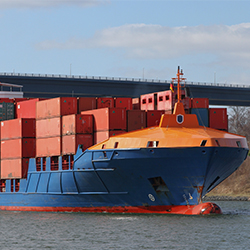 Patricia Whiting, senior international policy analyst at Sims Recycling Solutions and Josh Lepawsky, associate professor of geography at Memorial University in Newfoundland recently launched a Controversy Mapping project as it relates to the transboundary movement of e-waste on behalf of the Solving the E-Waste Initiative (StEP).
Patricia Whiting, senior international policy analyst at Sims Recycling Solutions and Josh Lepawsky, associate professor of geography at Memorial University in Newfoundland recently launched a Controversy Mapping project as it relates to the transboundary movement of e-waste on behalf of the Solving the E-Waste Initiative (StEP).
Controversy Mapping models are typically utilized to help experts and non-experts understand and make judgements about the trustworthiness of competing factual claims regarding the issue at hand. Controversy Mapping models have been effectively applied to a number of other controversial issues, including fracking.
Background
The transboundary movement of e-waste is an issue in which public controversies have emerged both in the media and with regards to policy-making at the state, federal and international levels. However, beyond the wide-spread perception that international e-waste shipments are made solely for dumping in developing countries, there are also legitimate shipments of used equipment for reuse and repair, as well as shipments of materials for recycling between countries. Depending upon the paradigm under which one operates and the sources of information one is exposed to, appeals are often made to ‘facts’ that should settle the dispute. However in a genuine controversy facts are precisely what are at stake since there is disagreement among experts themselves about which claims can be trusted as facts.
In brief, there are four steps to Controversy Mapping.
Step 1: First, an inventory is conducted of key statements circulated about a given issue. With regards to e-waste, such an inventory would include numbers, figures, images and text that circulate in the dialogue regarding the topic.
Step 2: This inventory of key statements is followed by an inventory of the actors who make these statements. In terms of e-waste, this inventory would be of non-government organizations (NGOs), policy makers, original equipment manufacturers (OEMs), recyclers, academics, media and others who make and circulate such statements.
Step 3: Then a network would be charted to connect the actors.
Step 4: The end product aspires to be a fair presentation of the statements, actors and networks relevant to a given controversy that enables both experts and non-experts to gain a fuller understanding of the range of disputes in a given controversy. For questions concerning the project contact the Co-Chairs at [email protected] or [email protected].
About StEP: StEP is a multi-stakeholder group coordinated by United Nation’s think tank, the United Nations University (UNU). StEP conducts objective and scientific research with the goal of fostering sound and effective policy-making. In addition to transboundary movement issues, StEP also conducts work on collection and recycling schemes in developing and emerging countries; assesses legislative principles related to e-waste; implements annual training academies for students and professionals respectively; develops training materials; sponsors technical assistance workshops and develops a plethora of papers concerning the recycling reuse, and refurbishment of e-waste.
For more information about StEP, contact Ruediger Kuehr, StEP’s executive secretary at [email protected] or Carole Mars, StEP’s regional focal point for North America and research manager for the Sustainability Consortium, at [email protected].